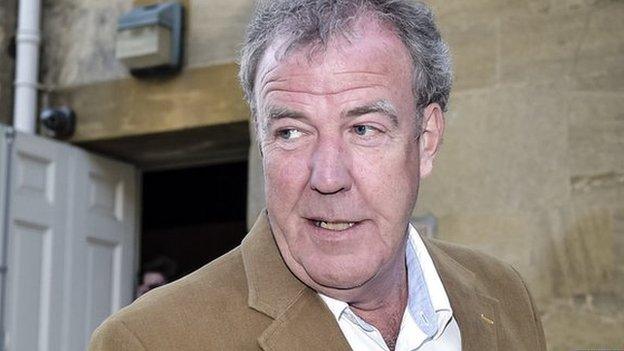Top Gear producer Andy Wilman quits show
- Published
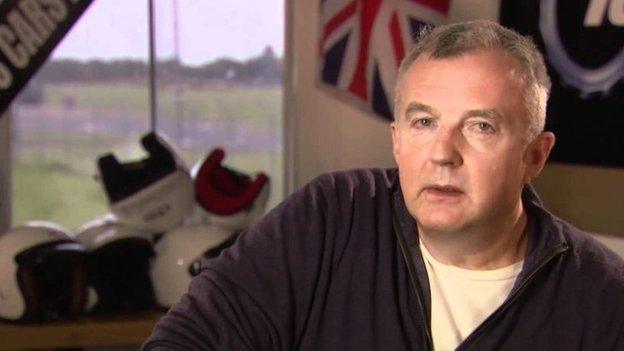
Andy Wilman relaunched Top Gear with Jeremy Clarkson in 2002
Top Gear executive producer Andy Wilman has quit the BBC show in the wake of Jeremy Clarkson's departure, the BBC has confirmed.
Former presenter Clarkson was dropped from the show last month following a "fracas" with a producer.
Wilman, who was an old school friend of Clarkson, helped reinvent the show and oversaw its growth into a globally successful programme.
Co-presenter Richard Hammond has also confirmed his intention to walk away.
The presenter, whose contract expired last month, wrote on Twitter, external: "To be clear, amidst all this talk of us 'quitting' or not: There's nothing for me to 'quit'.
"Not about to quit my mates anyway."
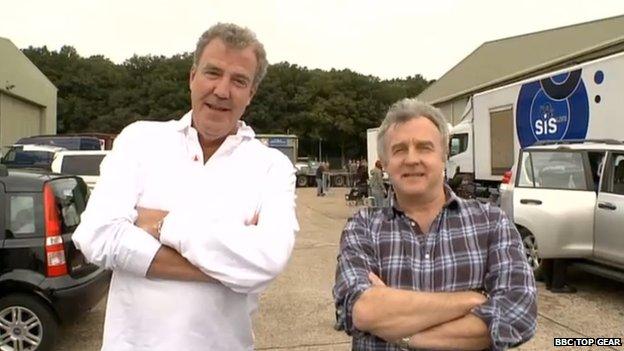
Jeremy Clarkson and Andy Wilman were old school friends
Wilman had previously denied he was leaving Top Gear, after a leaked email was interpreted as a farewell note to colleagues.
In the message, he said: "Our stint as guardians of Top Gear was a good one, but we were only part of the show's history, not the whole of it. Those two words are bigger than us."
However, Mr Wilman then said the email was "not a resignation statement, and nor was it meant for public consumption".
When Top Gear was on the verge of being cancelled around 15 years ago, Andy Wilman and Jeremy Clarkson came up with ideas to reinvigorate the programme.
The two old school friends turned a slightly worthy motoring consumer programme in to an entertainment show that was funny, irreverent, highly-produced and a hit around the world.
The BBC would not say whether or not Wilman's decision to leave was related to Clarkson's departure.

Analysis: David Sillito, media correspondent
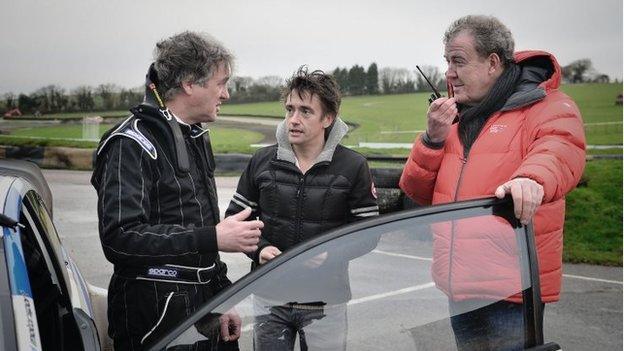
Try saying the words "star in a reasonably priced car". If you're a Top Gear fan it only sounds right if you put a Clarksonian pause after the word "star".
Jeremy Clarkson wasn't just a presenter, he was the show's soul. Every detail of script, tone and production grew out of a conversation between Clarkson and producer Andy Wilman in a pub some 15 years ago. (Andy Wilman's very entertaining account of it can be read in the latest edition of Top Gear Magazine).
The programme's spirit was what the author Nick Hornby had captured in his novels, the slightly tragic pleasures of "British blokedom". Richard Hammond got his job after revealing his embarrassing failures as a DJ on BBC Local Radio. James May amused them because of a long dull diatribe about buying lettuce to try to cut his fuel bills.
The merciless teasing, the banter, the spontaneity - they were all carefully planned, and captured the heart of a very British schtick. Characters who are funny, likeable, prone to grumbling and heroically uncool.
In the Guinness Book of Records, Top Gear is credited as the most watched "factual programme [insert Clarksonian pause] in the World". The joke, of course, is that the show was no longer a factual programme about cars but a cleverly disguised sitcom about flawed British blokes who love cars.
It's success depended on plotting and scripting and the carefully constructed relationships - Top Gear without Clarkson, May, Hammond and Wilman is a Marx Brothers film without the Marx Brothers.

'Daft idea'
Earlier on Thursday, James May said he would not return to the BBC show without co-host Clarkson.
May, who first appeared on Top Gear in 1999, said the show without Clarkson would be a "a bit of a daft idea".
May's agent, however, said the presenter was still in talks with the BBC about his role on the show.
Clarkson was suspended on 10 March, following what was called a "fracas" with Top Gear producer Oisin Tymon.
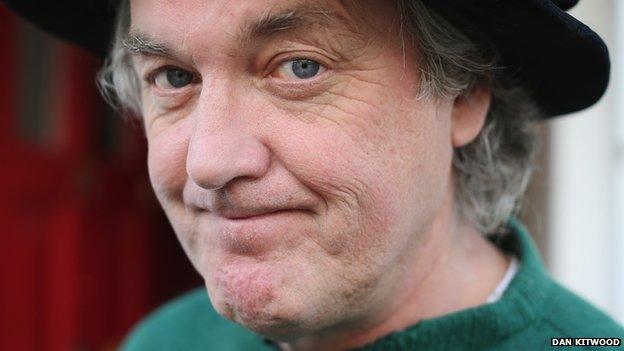
James May said on Thursday that returning as a Top Gear co-host without Jeremy Clarkson was "a non-starter"
The row, which took place in a Yorkshire hotel, was said to have occurred because no hot food was provided following a day's filming.
An internal inquiry found that Mr Tymon took himself to hospital after he was subject to an "unprovoked physical and verbal attack" by Clarkson.
On Wednesday, Kim Shillinglaw, head of BBC Two and BBC Four said Jeremy Clarkson "will be back on the BBC".
Ms Shillinglaw has been tasked with finding Clarkson's replacement for the motoring show.
- Published23 April 2015
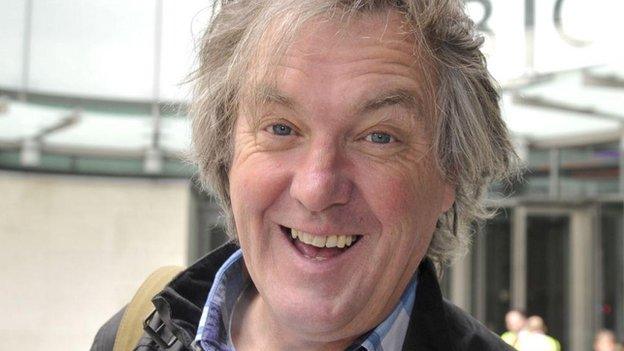
- Published22 April 2015
